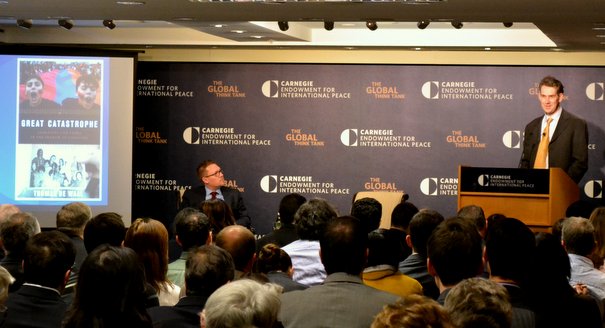Registration
You will receive an email confirming your registration.
The destruction of the Armenians of the Ottoman Empire in 1915–1916 was the greatest atrocity of World War I. Around one million Armenians were killed and survivors were scattered across the world. Although the issue of what most of the world calls the Armenian Genocide of 1915 is now a century old, it is still a live and divisive issue that mobilizes Armenians across the world, shapes the identity and politics of modern Turkey, and has consumed the attention of U.S. politicians for years.
In Great Catastrophe, the eminent scholar and reporter Thomas de Waal looks at the aftermath and politics of the Armenian Genocide and tells the story of recent efforts by courageous Armenians, Kurds, and Turks to come to terms with disaster as Turkey enters a new post-Kemalist era.
Carnegie hosted a conversation with the book’s author, moderated by Charles King.
Thomas de Waal
Thomas de Waal is a senior associate in the Russia and Eurasia Program at the Carnegie Endowment for International Peace, specializing primarily in the South Caucasus region, comprising Armenia, Azerbaijan, and Georgia and their breakaway territories, as well as in the wider Black Sea region.
Jessica T. Mathews
Jessica T. Mathews is president of the Carnegie Endowment for International Peace. Before her appointment in 1997, her career included posts in both the executive and legislative branches of government, in management and research in the nonprofit arena, and in journalism and science policy.
Charles King
Charles King is professor of international affairs and government at Georgetown University, where he previously served as chairman of the faculty of the Edmund A. Walsh School of Foreign Service. King’s research has focused on nationalism, ethnic politics, transitions from authoritarianism, urban history, and the relationship between history and the social sciences.
